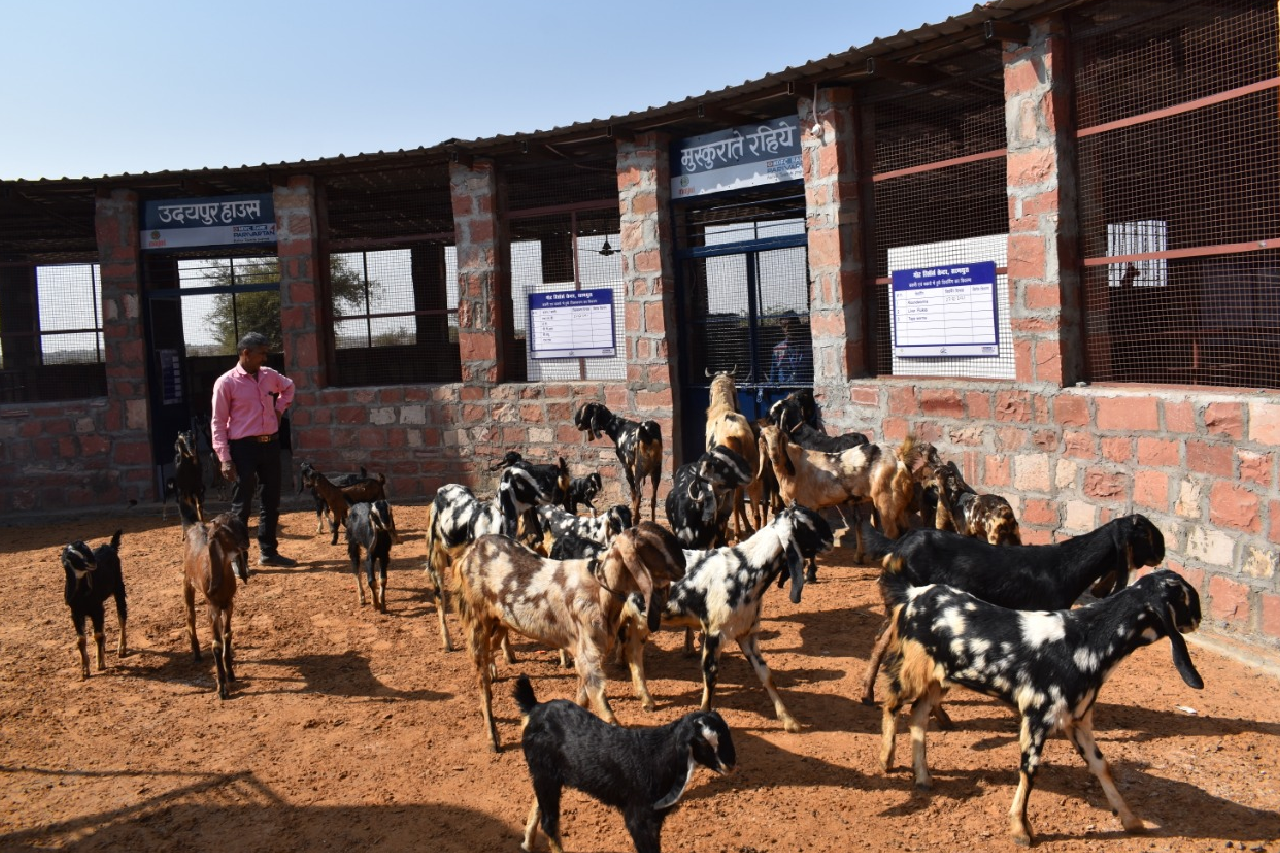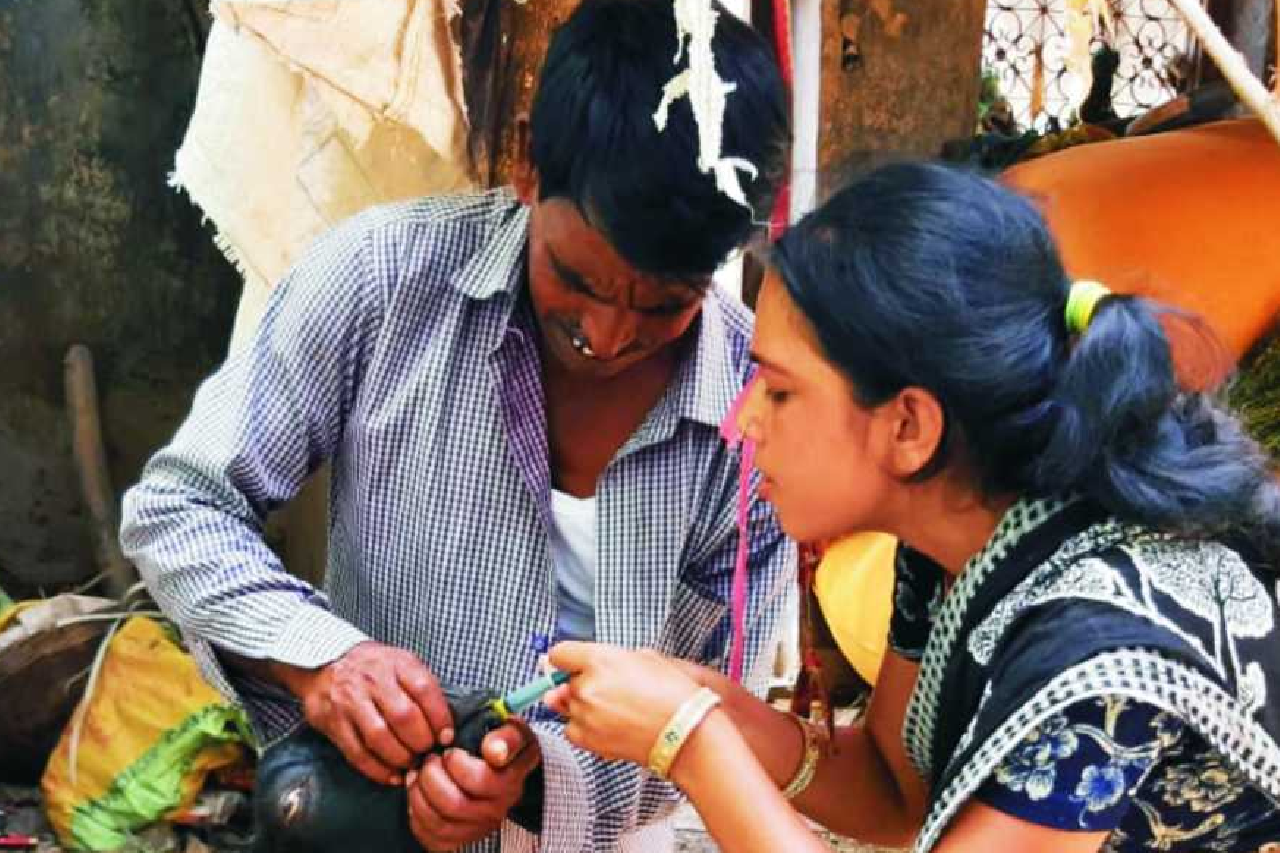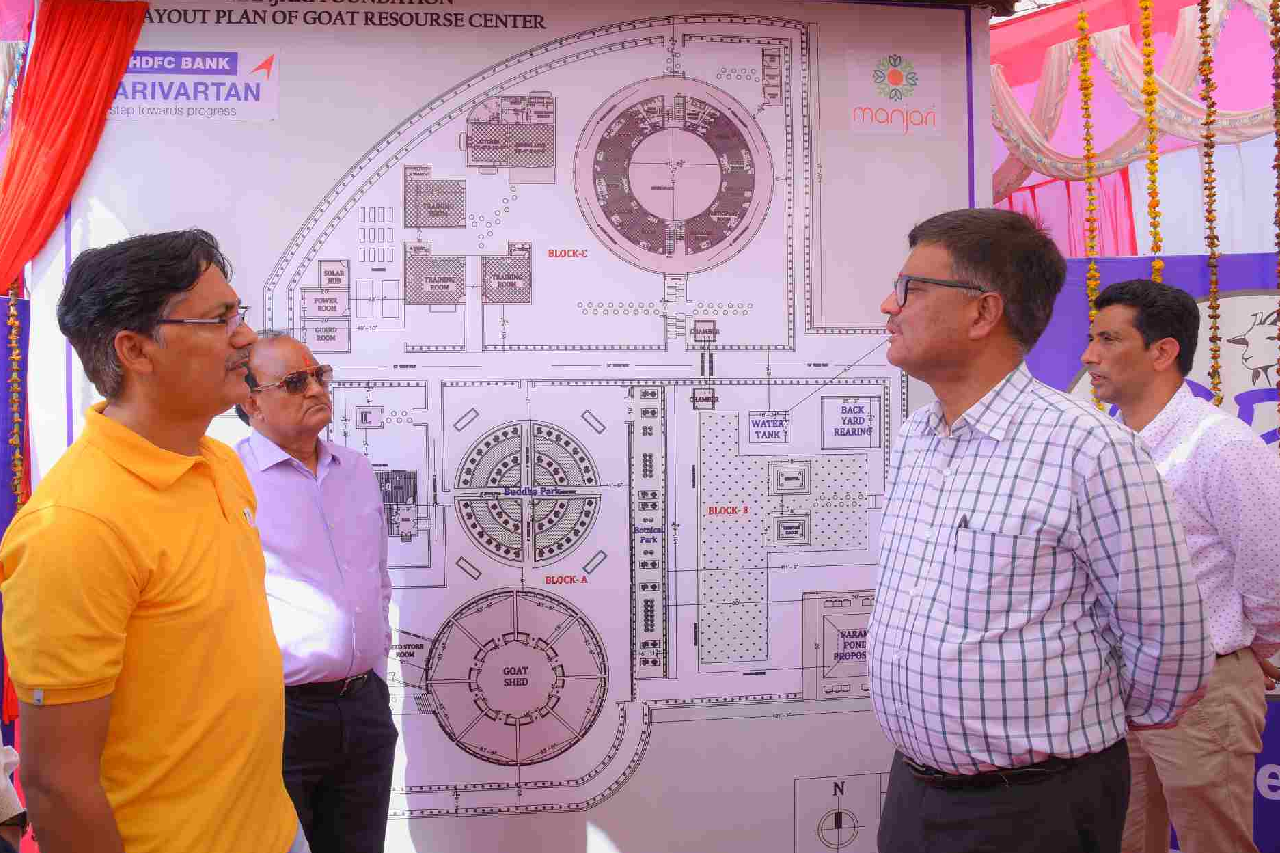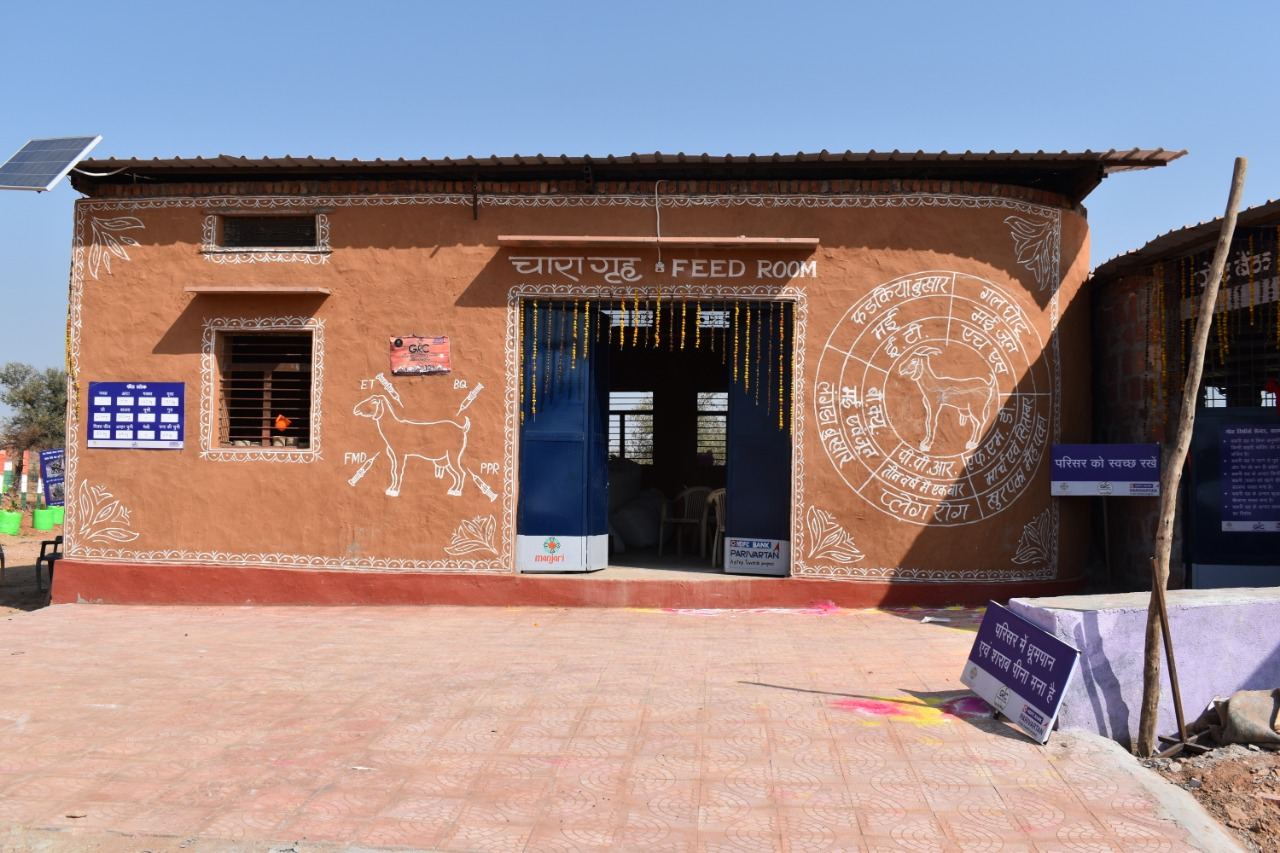Goat Rearing: Small Ruminants, Big Impact
Goat Rearing is also one of the major livelihood sources in our project areas. The major interventions are bettering the rearing and management practices to improve productivity, optimizing the herd size for sustained income, reducing the kids and adult mortality, providing preventive health care through Pashu Sakhi Model, credit provisioning for increasing the herd size and facilitating market linkages.
We have established a dedicated Goat Resource Centre at Dholpur to provide all important services related to small ruminants. We envisioned that this center will act as a resource center for the Rajasthan Bundelkhand region as well where the goat is an important source of livelihood for farmers. The GRC is providing numerous services to farmers.
Delivery Model
Developing livestock farmers' pathshala where farmers are trained on modern and advanced goat-rearing practices, ensuring technical support and market linkages for enhancing income









